By Kevin J.F. Murphy, Italy Academic Dean & Campus Director
That's exactly what I hoped to find out a month ago when I travelled to the US for a three-day Experiential Education Academy held by the National Society for Experiential Education (NSEE). The Academy was hosted by CEA’s university of record, the University of New Haven in Connecticut. UNH is recognized as a national leader in experiential education and requires every undergraduate student to complete an internship, an academic service learning experience, international study or a faculty-mentored research project before graduation.
The Academy was made up of workshops facilitated by well-known pioneers and experts in the field of experiential education: Pam Brumbaugh, Dwight Giles, Jim Walters, Eric Fink and Al Cabral ranged across theory and practice, strategic planning, legal aspects, assessment and evaluation.
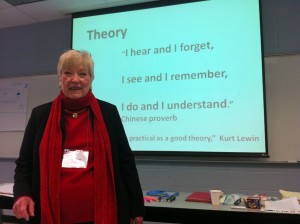
The first workshops, presented by Pam Brumbaugh from Elon University, covered "Fundamentals of Theory and Best Practices
in Experiential Education" and "Principles of Best
Practices in Experiential Learning".
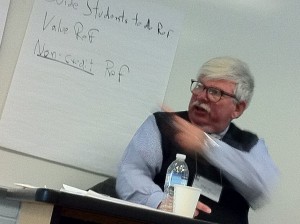
Dwight Giles, of the University of Massachusetts, Boston,
ran the workshop "Reflection: Making the Experience Educative"
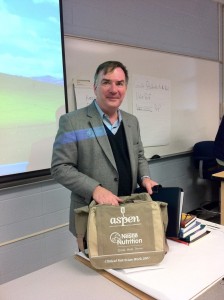
James Walters, Montgomery College, Takoma Park,
facilitated the workshop
"Identifying, Understanding and Applying
Outcomes Assessment in Experiential Learning"
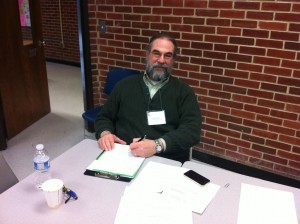
Our kind host, Dr.Jeremy Geller,
Associate Provost for International & Experiential Learning,
University of New Haven
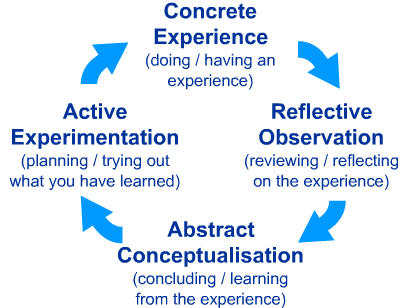

The first workshops, presented by Pam Brumbaugh from Elon University, covered "Fundamentals of Theory and Best Practices
in Experiential Education" and "Principles of Best
Practices in Experiential Learning".

Dwight Giles, of the University of Massachusetts, Boston,
ran the workshop "Reflection: Making the Experience Educative"

James Walters, Montgomery College, Takoma Park,
facilitated the workshop
"Identifying, Understanding and Applying
Outcomes Assessment in Experiential Learning"

Our kind host, Dr.Jeremy Geller,
Associate Provost for International & Experiential Learning,
University of New Haven
But what exactly is experiential education? To anyone who hasn't attended the Academy I suggest a quick look at the NSEE's 'eight principles of good practice for all experiential education activities'.
At first glance, seven of them appear to be relatively straightforward:
- · Intention: all parties know why the activity is taking place.
- · Preparedness: all parties subscribe to a clear, flexible plan.
- · Authenticity: the activity is a real-world experience.
- · Orientation & Training: for all parties involved.
- · Monitoring & Continuous Improvement: feedback essential.
- · Assessment & Evaluation: goals, objectives and outcomes.
- · Acknowledgment: brings closure and sustainability.
But the one principle that stands out is reflection. And here I'll quote the NSEE principle in full:
"Reflection is the element that transforms simple experience to a
learning experience. For knowledge to be discovered and internalized
the learner must test assumptions and hypotheses about the outcomes of decisions and actions taken, then weigh the outcomes against past learning and future implications. This reflective process is integral to all phases of experiential learning, from identifying intention and choosing the experience, to considering preconceptions and observing how they change as the experience unfolds. Reflection is also an essential tool for adjusting the experience and measuring outcomes."
Parts of that definition may sound obvious. But having gone through the NSEE workshops I can now see how many great experiences might not necessarily result in great learning unless married with reflection. The NSEE provides such a rich theoretical backdrop and so many practical examples of reflective exercises developed and evaluated by our colleagues in the field, that we could all benefit from a closer look.

The act of reflection is usually described with relation to a process known as the experiential learning cycle (pictured right). In the 1980s the American educational theorist David Kolb developed a theory of experiential learning that can give us a model by which to develop our practice. This is called The Kolb Cycle, The Learning Cycle or The Experiential Learning Cycle. The cycle, which can be entered at any point, comprises four different stages of learning from experience. All 4 stages must be followed in sequence for successful learning to take place. The Learning Cycle suggests that it is not enough to just have an experience in order to learn. Rather, it is necessary to reflect on the experience to make generalisations and formulate concepts which can then be applied to new situations. This learning must then be tested out in new situations. The learner must make the link between the theory and action by planning, acting out, reflecting and relating it back to the theory.
Getting this cycle to 'happen' in and out of the classroom, in onsite classes at historical sites, churches, and voluntary activities in the local community surely offers great benefits not only to students but also to instructors and staff, who can learn from their own experiences to develop more effective methods of creating great learning opportunities for our study abroad students. In my case, the NSEE Experiential Education Academy provided me not just with my NSEE certification, but also with key take-aways and substantive resources that are already helping me better integrate experiential education into day-to-day practice and long-term development of our Italy programs.
For more information on future NSEE academies and workshops, see the website of the National Society for Experiential Education







